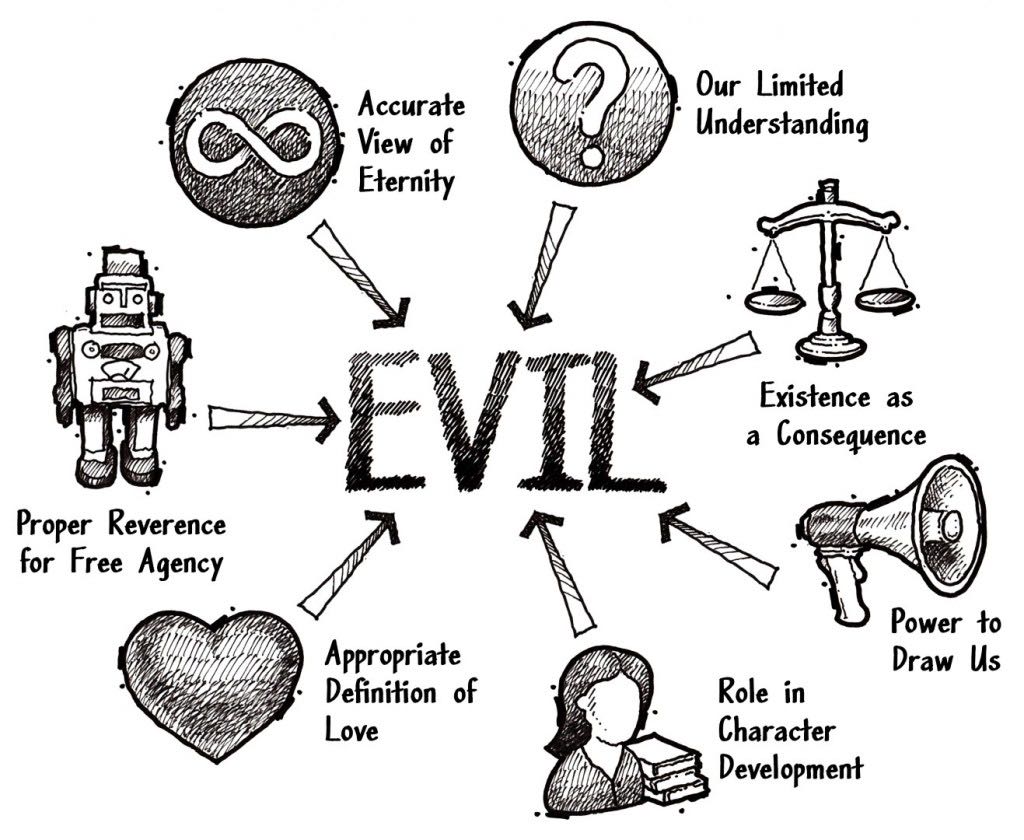
“It is an indisputable fact that the history of the world contains some of the most appalling suffering imaginable, suffering that is either the result of natural disaster, such as earthquakes, volcanic eruptions, disease and famine, or the result of human actions, such as wars, ecological disasters and religious persecution. Does this present a problem for theism? Certainly there is a case to answer if we believe in a deity who is all-knowing, all-powerful and perfectly good. If he is all-knowing, he will be aware of suffering; if he is all-powerful, he will be able to prevent suffering; and if he is perfectly good, he will desire to prevent suffering. But, clearly, he does not prevent suffering, so either there is no such deity. Or, if there is, he is not all-knowing, all-powerful and perfectly good. Though he may be one or two of these.”
Whatever explanation we consider for the problem of evil, it must account for the existence of moral evil (like the evil caused by humans), natural evil (like the hardship we see resulting from earthquakes and tsunamis), and pain and suffering (like the anguish experienced by disease). Can evils such as these be reconciled to the existence of a Divine Creator, and if so, what are the complex, interconnected, causal relationships between the explanations? In God’s Crime Scene, I offer a template of seven important considerations when explaining and understanding any particular act of evil. One of these seven considerations is God’s desire to use evil to draw us to Himself:

Illustration from God’s Crime Scene
Most of us, whether we believe in an all-powerful, all-loving Creator or not, have secretly whispered a prayer at times of desperation. I did it on occasion as a committed atheist, even though I saw it as nothing more than a reflex. But for many people, an encounter with evil is often the first time they seriously think about the existence of a Creator.
As a Christian homicide detective, I’ve seen the power evil has to draw families and victims to the throne of the Divine. When people reach their own limits, realize their true frailty and come to understand the transient nature of their material lives, they often begin to seek transcendent answers. Many of the families who have suffered the loss of a loved one at the hands of a brutal murderer have been drawn to an “other-worldly” source of strength, hope and deliverance.
If an all-powerful, all-loving Creator truly exists, some evils might be reconciled based on their ability to refocus our attention, remind us of the nature of eternal life, and draw us to our Creator. C. S. Lewis once put it this way:
“Let me implore the reader to try to believe, if only for the moment, that God, who made these deserving people, may really be right when He thinks that their modest prosperity and the happiness of their children are not enough to make them blessed: that all this must fall from them in the end, and that if they have not learned to know Him they will be wretched. And therefore He troubles them, warning them in advance of an insufficiency that one day they will have to discover. The life to themselves and their families stands between them and the recognition of their need; He makes that life less sweet to them.”
And philosophy professor Eleanore Stump adds:
“No amount of moral or natural evil, of course, can guarantee that a man will seek God’s help. If it could, the willing it produced would not be free. But evil of this sort is the best hope, I think, and maybe the only effective means, for bringing men to such a state.”
No single explanation will account for every act of evil. There are often several causes involved in explaining any given episode of suffering. But one thing is certain: Thousands of Christian believers tell a story of conversion involving some act of pain or suffering. In that time of crisis, they turned to God for the very first time. In fact, most of these new Christians can recall a number of people who shared Christ with them prior to their time of trouble, but these efforts fell on deaf ears. Only through the prompting of pain and suffering were these people brought to the end of themselves and the beginning of their relationship with Jesus. God may certainly use evil to reach those who won’t listen any other way. To better understand the interconnected relationship between the seven considerations I’ve mentioned, please refer to God’s Crime Scene, Chapter Eight – The Evidence of Evil: Can God and Evil Coexist? No single explanation will account for every act of evil. But one thing is certain: Thousands of Christian believers tell a story of conversion involving some act of pain or suffering Share on X

J. Warner Wallace is a Dateline featured Cold-Case Detective, Senior Fellow at the Colson Center for Christian Worldview, Adj. Professor of Christian Apologetics at Talbot School of Theology, Biola University, author of Cold-Case Christianity, God’s Crime Scene, and Forensic Faith, and creator of the Case Makers Academy for kids.
Subscribe to J. Warner’s Daily Email
J. Warner Wallace is a Dateline featured cold-case homicide detective, popular national speaker and best-selling author. He continues to consult on cold-case investigations while serving as a Senior Fellow at the Colson Center for Christian Worldview. He is also an Adj. Professor of Christian Apologetics at Talbot School of Theology, Biola University, and a faculty member at Summit Ministries. He holds a BA in Design (from CSULB), an MA in Architecture (from UCLA), and an MA in Theological Studies (from Gateway Seminary).
































